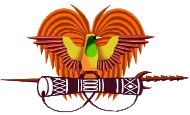Papua New Guinea (PNG) and the United Kingdom (UK) have enjoyed strong and cordial bilateral relations over the years since formal diplomatic ties were established on 16th September 1975. The United Kingdom has a resident diplomatic mission in Port Moresby currently headed by High Commissioner H.E. Ms Jackie Barson. The PNG High Commissioner to the United Kingdom based in London is H.E Ms Winnie A. Kiap who is concurrently accredited as High Commissioner to the Republic of Cyprus and the Republic of South Africa; and as Ambassador to the Arab Republic of Egypt, the State of Israel and the Republic of Zimbabwe.
London is the headquarters of more than 50 international organizations. Some of which are of significant importance to PNG such as the International Coffee Organization (ICO), International Cocoa Organization (ICCO), International Maritime Organization (IMO), CABI and the Commonwealth Secretariat. And with over 170 foreign resident missions based in UK, PNG’s presence through its High Commission provides a strong political and diplomatic leverage in engaging with these foreign missions as well as with the international organizations.
Papua New Guinea is one of the 16 Realm countries within the Commonwealth of Nations. The British Monarch is its Monarch and Head of State, represented by the Governor General of Papua New Guinea who is elected by Parliament.
The political goodwill between PNG and the UK has been strengthening over the years. The Queen, as Head of State, continues to play her role as dictated by the constitution, in the appointment of governors-general and through the Governor General, appointments of constitutional office-holders and her diplomatic representatives to other Realms. The Queen and members of her family have visited PNG on many occassions. The most recent royal visit to PNG was by Their Royal Highnesses, The Prince of Wales and the Duchess of Cornwall on 3 - 5 November 2012 as part of the Queens Diamond Jubilee celebrations. In January 2013, the permanent head of the Foreign & Commomwealth Office, Simon Fraser, visited PNG followed by a UK Commonwealth Parliamentary Association delegation led by The Rt. Hon.Baroness Eccles in February and The Rt. Hon. Hugo Swire, Minister of State at the Foreign & Commonwealth Office in April. These visits suggest a re-kindling of interest by the British Government in the pacific region.
On the economic front many British companies operate in and contribute to the development of PNG and its people. These include the Swire Group, 4GS, Rio Tinto, Xtrada, Heritage Oil, and Ashurst.
PNG and the United Kingdom have entered into a double-taxation treaty as well as an Investment Promotion and Protection Agreement. These two arrangements provide an environment for the private sectors of both countries to conduct business.
There is interest on the PNG side for a bilateral trade agreement.
At the regional level both countries are members of the ACP-EU arrangement under which the EU provides development assistance to the ACP regions through negotiated Economic Partnership Agreements (EPA). Apart from the Caribbean countries (CARICOM), Africa and the Pacific ACP countries are yet to sign a comprehensive agreement with the EU which is supposed to be development friendly. Only Fiji and PNG have signed bilateral trade agreements with the EU for sugar and tuna fish respectively. A comprehensive agreement involving all the Pacific ACP states is still under negotiation.
Strong economic ties between PNG and the UK are attributable to significant historical ties including similarities in legal frameworks and by membership of the Commonwealth of Nations. As members of World Trade Organization both countries conduct trade under this rules-based system.
PNG’s exports to the United Kingdom include tuna, coffee, tea, vanilla, copra, palm oil, coconut oil, palm kernel, cocoa beans, copper ores and concentrate, rubber, and sawn timber. These are all primary items. In return, PNG imports from United Kingdom canned meat, alcohol and spirits, chemical, pharmaceutical products, machinery and mechanical appliance, and others including manufactured goods. In 2009 the UK was PNG’s largest (12th) trading partner and the second largest buyer of palm oil and third largest market for copra oil. 2009 records show that trade with the UK is in PNG’s favour.

